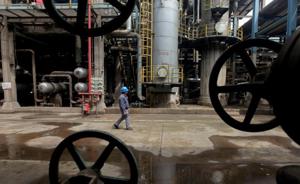China "teapot" oil group urges compliance on quotas, tax
BEIJING (Reuters) — An alliance of more than 20 of China's independent oil refineries has urged its members to strictly adhere to government rules on oil quotas and taxes, according to a group statement seen by Reuters on Tuesday.
The mostly privately run refineries, known as "teapots" have upended China's oil market after Beijing began allowing them to import crude in late 2015 in an effort to shake up a market dominated by state-owned majors.
However, state firms like Sinopec and PetroChina have repeatedly accused the independents of undercutting their larger rivals by evading or under-paying consumption taxes for gasoline and diesel. Beijing in 2016 dispatched inspection teams to oversee the teapots' tax records.
The independents are also facing shifting government policies on oil quotas at a time when domestic oil demand growth is slowing, undermining their ability to expand after a stellar year in 2016.
"(We) shall strictly abide by government regulations over flows of crude oil, pay taxes according to the law," the statement from the alliance said.
"Resale of (imported) crude oil shall be strictly prohibited ... defaults shall be banned."
The government has stipulated that crude brought in via import quotas should only used by the independents for their own processing and not resold in the market.
The alliance, headed by Shandong Dongming Petrochemical Group, the country's largest independent refiner, also called for joint purchasing and information sharing in a bid to stave off internal competition.
Since late 2015, China has allowed about 28 independent companies to import crude oil for the first time in an effort to to boost private investment and encourage competition.
The plants have won crude oil import quotas totaling nearly 1.9 MMbpd, and made imports equal to about 18% of China's total oil imports in the first quarter.
Reporting by Chen Aizhu; Editing by Richard Pullin







Comments